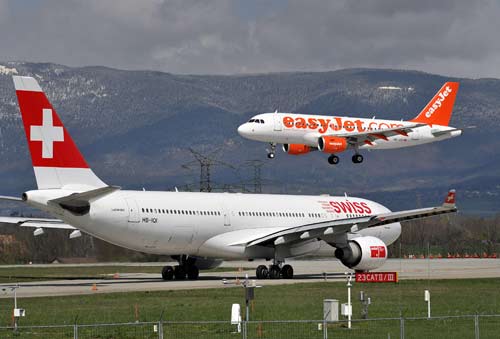Going on holiday? Don't let your cash get blown away
Currency exchange, debit and credit cards, traveller's cheques ... Esther Shaw sees how to curb fees and ensure your foreign funds go the distance

If you're planning a summer escape, you may be busy chasing a cheap deal on your flights and accommodation, but don't forget to set aside a little time to sort out your overseas spending. There are plenty of steps you can take to ensure you use money efficiently while you're away.
Most people change some money before travelling, but take into account both the exchange rate and the amount of commission levied if you want your cash to go as far as possible.
"Don't wait until the last minute to buy your foreign currency, as exchange rates at airport bureaux de change are generally not as good as those on the high street or online," says Martyn Hocking from Which?, the consumer body.
While some airport outlets charge 2 per cent commission per transaction, high-street retailers such as Marks & Spencer and the Post Office levy nothing.
But Steve Willey from price-comparison service Moneysupermarket.com warns that many providers shout about offering "commission-free" currency, only to hide uncompetitive rates behind this 0 per cent headline figure. His recommendations for currency exchange include Travelex, FairFX and ICE.
It's sensible to carry your money in more than one form overseas – perhaps a mixture of cash, cards and traveller's cheques. The latter were once popular but are becoming a thing of the past, says Mr Willey. "You are essentially being charged twice – once when you buy the cheques and again when you cash them in."
That said, there is still call for the cheques, according to Andrew Hagger from financial analyst Moneyfacts. "Traveller's cheques have pretty much been super-seded by cash and plastic," he says, "but there will be diehard fans who don't want to use cards and who don't feel secure carrying cash."
Moneysupermarket.com puts Travelex top of the "best buy" table for rates and fees combined.
If you are planning to use plastic overseas, you need to play your cards right. Almost all credit cards add a 2.75 per cent foreign loading fee to each purchase. Nationwide, the Post Office and Saga are among the few providers that do not.
Importantly, the Consumer Credit Act gives you the same protection abroad as you receive in the UK if goods prove to be faulty: you can claim your money back from the credit card firm as long as the goods cost between £100 and £25,000. But Mr Hocking urges holidaymakers to avoid using credit cards for cash withdrawals. "You will be charged a higher rate of interest from the date of withdrawal and a cash handling charge," he says. "It is cheaper to use a debit card."
However, it's still worth checking on charges levied on your debit card, as these can vary widely. "If you have a Halifax debit card, say, you will be charged a 2.75 per cent foreign usage fee, plus £1.50 for each cash withdrawal or purchase," says Mr Hagger. "Lloyds TSB debit card holders will face a 2.99 per cent foreign usage fee, plus a £1 fee for each purchase – and between £2 and £4 per cash withdrawal."
When using your card, also be aware of "dynamic currency conversion", where a retailer offers to charge you in sterling as opposed to the currency of the country you're travelling in. "You will normally be hit with a higher exchange rate for this service," warns Mr Hagger.
And don't forget to tell your card issuer you're going away. "In a bid to tackle fraud, your provider may query any foreign transactions or cancel your card," says Mr Hocking. "So talk to them before you go on holiday, telling them where you are travelling to and how long you will be away."
Join our commenting forum
Join thought-provoking conversations, follow other Independent readers and see their replies
Comments
Bookmark popover
Removed from bookmarks